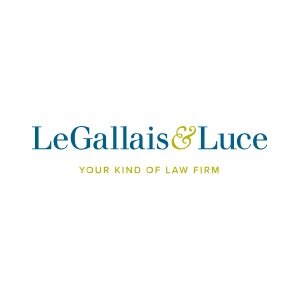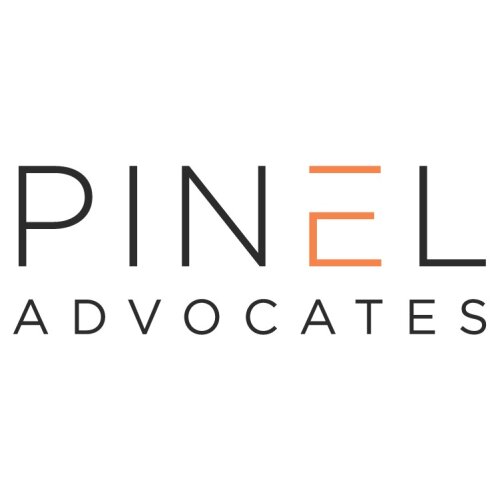Best Public-Private Partnerships (PPP) Lawyers in Jersey
Share your needs with us, get contacted by law firms.
Free. Takes 2 min.
Or refine your search by selecting a city:
List of the best lawyers in Jersey
About Public-Private Partnerships (PPP) Law in Jersey
Public-Private Partnerships (PPP) are collaborative agreements between government entities and private sector organizations for the delivery of public infrastructure, services, or projects. In Jersey, PPPs have gained prominence as a means to finance, build, and manage projects such as roads, schools, waste facilities, and healthcare infrastructure. PPPs enable governments to benefit from private sector investment, innovation, and risk-sharing while ensuring the provision of essential public services. The regulatory landscape in Jersey is shaped by both local legislation and best practice guidelines, making it vital for those involved in PPPs to understand their legal obligations and opportunities.
Why You May Need a Lawyer
Navigating Public-Private Partnerships in Jersey involves complex legal, financial, and operational considerations. Engaging a lawyer can be essential in many scenarios, including:
- Drafting, reviewing, and negotiating PPP contracts or concession agreements.
- Advising on risk allocation, project finance, and regulatory requirements.
- Conducting due diligence for prospective partners or investors.
- Assisting in dispute resolution or claims that may arise during a PPP project.
- Interpreting and applying Jersey’s legal framework to ensure compliance.
- Managing procurement processes and ensuring adherence to transparency obligations.
- Addressing concerns about public accountability, asset ownership, and operational control.
- Protecting intellectual property rights and confidential information.
Given the scale and public impact of PPP projects, securing professional legal advice can help mitigate risks and improve project outcomes.
Local Laws Overview
Jersey does not have a single, dedicated Public-Private Partnership Law. Instead, PPP projects are regulated through a combination of statutory instruments, procurement guidance, and general principles derived from contract, competition, and administrative law. Key aspects relevant to PPPs in Jersey include:
- Contract Law - The foundation of all PPP agreements, governed by Jersey contract law, with guidance on formation, enforceability, and remedies.
- Procurement Regulations - The States of Jersey have established procurement best practices to ensure fair, open, and competitive bidding for PPP projects.
- Planning and Environmental Legislation - Large infrastructure projects may require planning permissions and environmental assessments under relevant laws.
- Finance Law - PPPs frequently involve complex financing structures, including loans, bonds, and guarantees, all subject to Jersey’s robust financial services regulations.
- Public Accountability - There are requirements for transparency, reporting, and public scrutiny to safeguard the public interest in PPP arrangements.
- Sector-Specific Regulation - Certain sectors, such as healthcare or utilities, may be subject to additional regulatory oversight or licensing.
It is important to consult with local legal professionals to interpret and apply the relevant laws effectively to each PPP project.
Frequently Asked Questions
What is a Public-Private Partnership (PPP) in Jersey?
A PPP in Jersey is an arrangement where a government body collaborates with one or more private companies to finance, build, operate, or manage public infrastructure or services.
Are PPPs regulated by a specific law in Jersey?
No, there is no single statute governing PPPs in Jersey. PPPs are subject to a mix of contract law, procurement regulations, and sector-specific requirements.
Who can participate in PPP projects in Jersey?
Both local and international private sector entities, including construction firms, service providers, and financiers, can participate in PPPs, subject to eligibility set out in procurement guidelines.
What are the main advantages of PPPs in Jersey?
PPPs allow the public sector to leverage private sector expertise, innovation, and financing, potentially leading to better value for money, efficient delivery, and improved service quality.
How are risks shared in a PPP arrangement?
Risks are allocated between the public and private partners through contract terms, with each party typically assuming responsibilities best aligned with their expertise or capacity to manage those risks.
What are the typical stages of a PPP project in Jersey?
PPP projects generally progress through project identification, feasibility assessment, procurement, negotiation and contracting, construction or implementation, operation, and monitoring.
How is transparency maintained in PPP projects?
Procurement and project management processes in Jersey are designed to be transparent, with requirements for reporting, public consultation, and, in some instances, parliamentary scrutiny.
Can disputes arise in PPP projects, and how are they resolved?
Yes, disputes can occur regarding contractual performance, payment, or changes to project scope. These are typically resolved through negotiation, mediation, or arbitration as specified in the contract.
What due diligence should be performed before entering into a PPP?
Potential partners should conduct legal, financial, and technical due diligence to assess project viability, understand obligations, and identify potential risks before signing any agreement.
Do PPP projects in Jersey need to comply with environmental regulations?
Yes, all PPP projects must comply with relevant planning and environmental legislation, including assessments of environmental impact and sustainability commitments.
Additional Resources
If you are considering or involved in a PPP project in Jersey, the following resources may be helpful:
- States of Jersey Public Sector Procurement - Guidance and standards for procurement processes.
- Jersey Law Commission - Information on developments in Jersey law and suggested legal reforms.
- Jersey Financial Services Commission (JFSC) - Advice on compliance with finance and investment regulations.
- Government of Jersey - Public records, policy documents, and updates about infrastructure projects.
- Professional legal and consulting firms - Specialist advice and representation for PPP projects.
Next Steps
If you are contemplating involvement in a Public-Private Partnership in Jersey or need assistance with an existing project, consider taking the following steps:
- Identify your objectives and the nature of your potential involvement in the PPP.
- Gather all relevant project information, including contracts, procurement documents, and correspondence.
- Research the applicable legal and regulatory requirements for your sector and project type.
- Consult with a qualified lawyer who specializes in public procurement, contract law, and PPPs in Jersey.
- Discuss concerns, risks, or any uncertainties you have prior to signing or committing resources.
- Stay engaged throughout the project, monitoring compliance and performance and seeking legal advice when necessary.
By taking these steps and seeking appropriate legal guidance, you can protect your interests and enhance the chances of a successful PPP project in Jersey.
Lawzana helps you find the best lawyers and law firms in Jersey through a curated and pre-screened list of qualified legal professionals. Our platform offers rankings and detailed profiles of attorneys and law firms, allowing you to compare based on practice areas, including Public-Private Partnerships (PPP), experience, and client feedback.
Each profile includes a description of the firm's areas of practice, client reviews, team members and partners, year of establishment, spoken languages, office locations, contact information, social media presence, and any published articles or resources. Most firms on our platform speak English and are experienced in both local and international legal matters.
Get a quote from top-rated law firms in Jersey — quickly, securely, and without unnecessary hassle.
Disclaimer:
The information provided on this page is for general informational purposes only and does not constitute legal advice. While we strive to ensure the accuracy and relevance of the content, legal information may change over time, and interpretations of the law can vary. You should always consult with a qualified legal professional for advice specific to your situation.
We disclaim all liability for actions taken or not taken based on the content of this page. If you believe any information is incorrect or outdated, please contact us, and we will review and update it where appropriate.
Browse public-private partnerships (ppp) law firms by city in Jersey
Refine your search by selecting a city.










